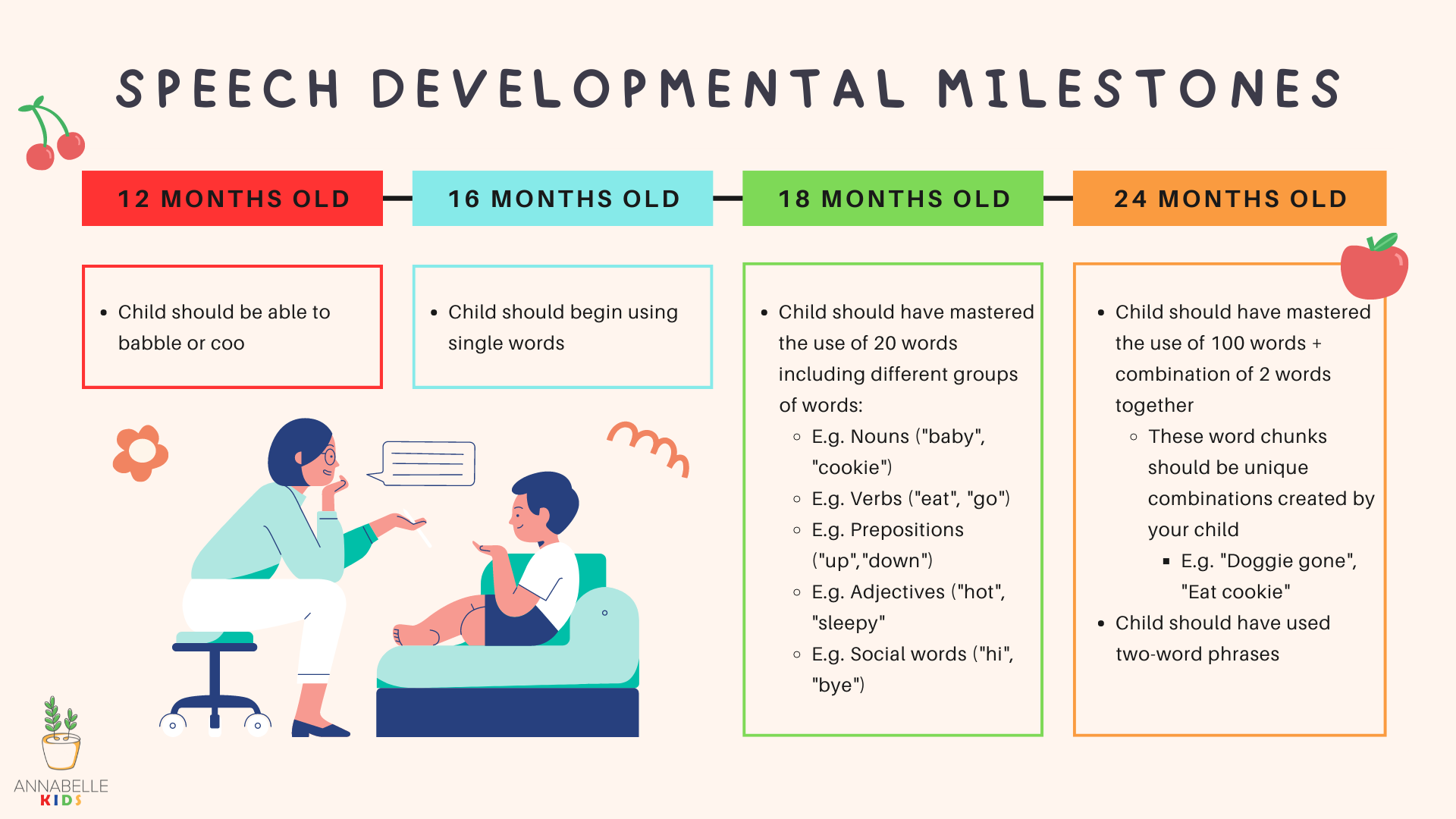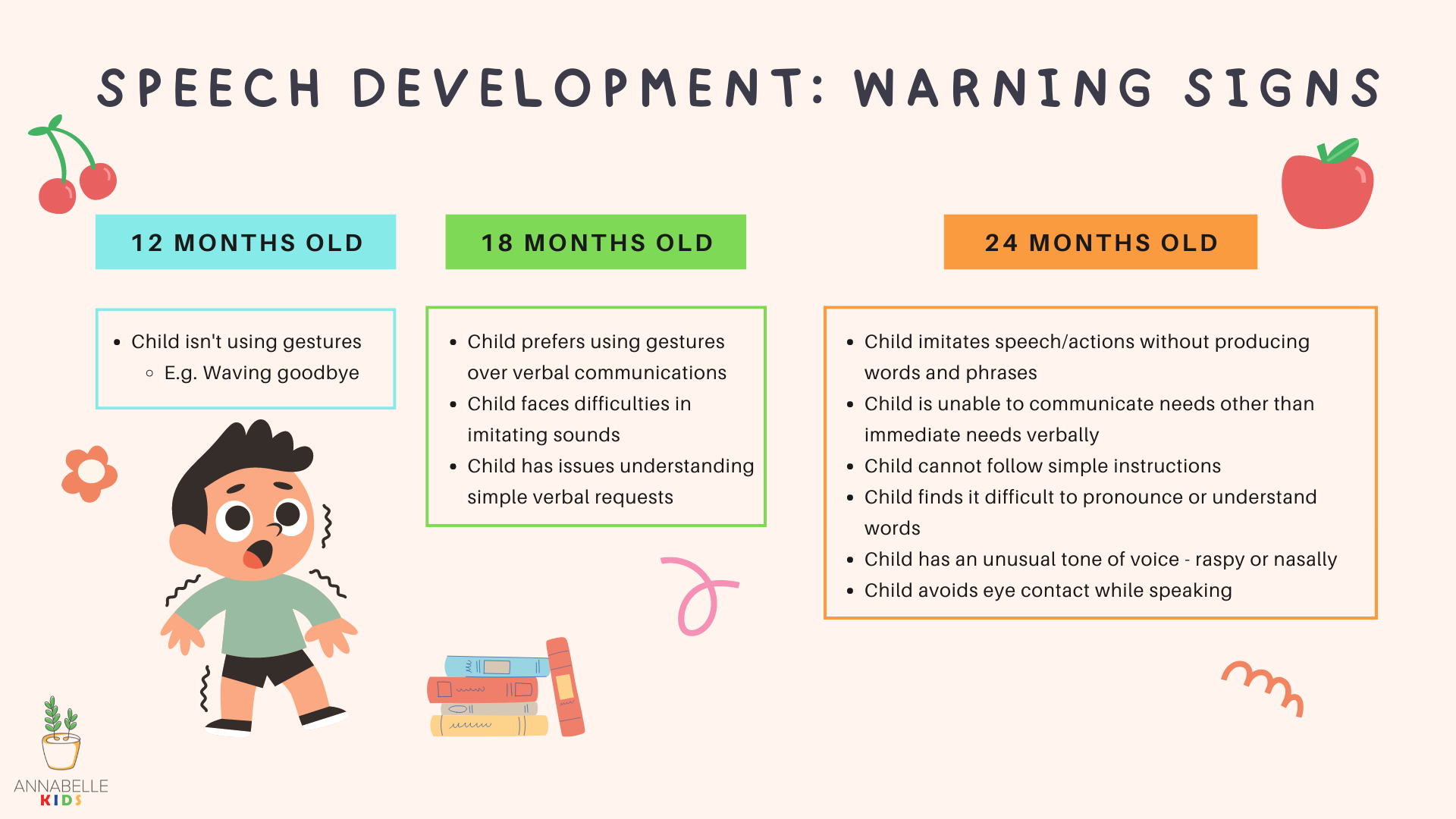Communication Disorders
Childhood Speech Delay
Children are typically encouraged to “take your own time” and to figure things out. However, when should you be concerned by your child’s lack of chattiness or range of vocabulary? While children are mostly encouraged to develop their speech and language skills at their own pace, it can be frustrating when they seem to be falling behind “schedule”.
At the risk of sounding like a broken record, it is important to monitor your child to ensure that they meet each developmental milestone. If said milestones aren’t attained, it may be fruitful to consider early intervention to ensure your child prospers at an adaptive pace.
When should I be concerned about my child's speech development?
We have all experienced the difficulty of deciphering a child’s babbling. As endearing as it may be to watch them chatter somewhat haphazardly, it is also important to notice how much we are able to comprehend children as they grow. As a rule of thumb, 50% of a 2-year-old’s speech, 75% of a 3-year-olds, and 100% of a 4-year-old’s speech should be understood. Strangers should also be able to understand your child’s speech by the time they are 4 years old.
The following signs are important to look out for:
Additional warning signs include the following:
Ψ Little to no babbling during infancy
Ψ History of ear infections
Ψ Limited use of consonant sounds e.g., p, b, m, t, d, y, k, g
Ψ Doesn’t use pretend ideas and actions together while playing make-believe scenarios
Ψ Doesn’t imitate words
Ψ Uses nouns (places, things etc.) excessively, while using few verbs (action words)
Ψ Has a difficult time getting along with peers
Ψ Uses minimal to no gestures to communicate
Ψ A family history of communication delay, learning or academic difficulties
Ψ Mild difficulty in understanding (comprehension delay) for his or her age
Even though it may be scary to process, it is important to consider that your child may be experiencing a speech delay, especially if they tick the last 3 boxes (little use of gestures, family history, and mild comprehension delay).
A child’s symptoms of speech delay delay may be a result of a hearing problem or a lack of stimulation at home. In some cases, it may also be the result of a cognitive impairment or developmental disorder.
Some other common causes for speech delays include:
Ψ Hearing loss – Without proper hearing, your child may find it difficult to process sound, which may impact speech development.
Ψ Language delay – If a different language is spoken in your household, a delay in speech development may occur as it becomes more difficult for your child to code switch (i.e., constantly switch between languages).
Ψ Developmental delays – Delays in other areas of your child’s life (e.g., crawling) may lead to delays in speech development.
Ψ Autism spectrum disorder (ASD) – children with ASD tend to have a harder time with communication, which includes speech issues.
Ψ Intellectual disability – A child with an intellectual disability may affect their ability to understand and/or produce language.
How Are Speech Delays Diagnosed?
An experienced speech and language therapist (SLT) observes a child’s speech and language skills and assesses how they compare to typical developmental milestones of other children of the same age.
The speech therapist will also assess your child on the following domains
Receptive language – Referring to what your child understands
Expressive language – What your child is able to say
Sound development and clarity of your child’s speech
Your child’s oral-motor status – How the mouth, tongue, palate, etc., work together for speech in addition to eating and swallowing.
Intervention
Speech therapy can help your child develop his or her communication skills. A speech therapist will work on the expansion of language or alternative communication strategies. They could also introduce exercises to strengthen the child's oral muscles and teach the child how to coordinate the muscles used for speech. In some cases, the speech therapist may recommend your child to join a special education program.
Early intervention for speech delays can help reduce potential problems in other developmental areas: behaviour, leaning, literacy and social interaction.
Speech and Language Development in Children: Tips for Parents
Parents play a vital role in cultivating a conducive learning environment for their child.
It is important to not pressure your kids too much as it may cause your child to clamp up instead of open up. Hanging out with your child will also spur them to pick up verbal communication skills from you.
There are a few ways to encourage your child’s learning, such as:
Ψ Speaking to your child frequently and using simple words
The more your child hears language, the more she or he will learn. Speaking to your child frequently, while using simple words will enable them to learn.
(That being said, we may not always want children to pick up all of the words we use, if you get the gist).
Ψ Reading books to your child
Reading books is an excellent way to help your child learn new words and to develop his or her vocabulary. Buying age-appropriate books or picture books gives your child the opportunity to expand their vocabulary.
Ψ Repeating what your child says
Repetition helps children learn new words and phrases. When your child says something, repeat it back to him or her in a clear and concise way.
(This also has the additional bonus of tiring your child out, which may give you some long deserved rest time from their hyperactivity).
Ψ Using sign language
Sign language is a useful alternative medium for children to use to communicate their needs and desires before they are able to speak.
Ways to encourage your kids to speak
Ψ When your child starts to babble, encourage them by repeating the sounds they make. This will slowly encourage them to even start a mini “conversation” with you.
Ψ To further spark your child’s interest in the world around them, look out for non-verbal signals around them. For example, you may ask them, “what are you looking at” when faced with interesting stimuli. This may encourage them to engage in conversation with you.
Ψ Even though you may come off looking a tad odd, it is helpful to guide your child by talking your way through the day. You could do this by naming foods at the grocery store or explaining what you are doing. Keep things simple while avoiding “baby talk” to encourage your child to learn new words, which they will hopefully one day imitate.
Ψ Talking or singing with your child. This encourage communication, while also persuading your child to imitate said sounds and gestures.
Ψ Avoid long and complex sentences with them. It can be helpful to stress specific words like “black cat” in a sentence to highlight the object’s importance to your child.


